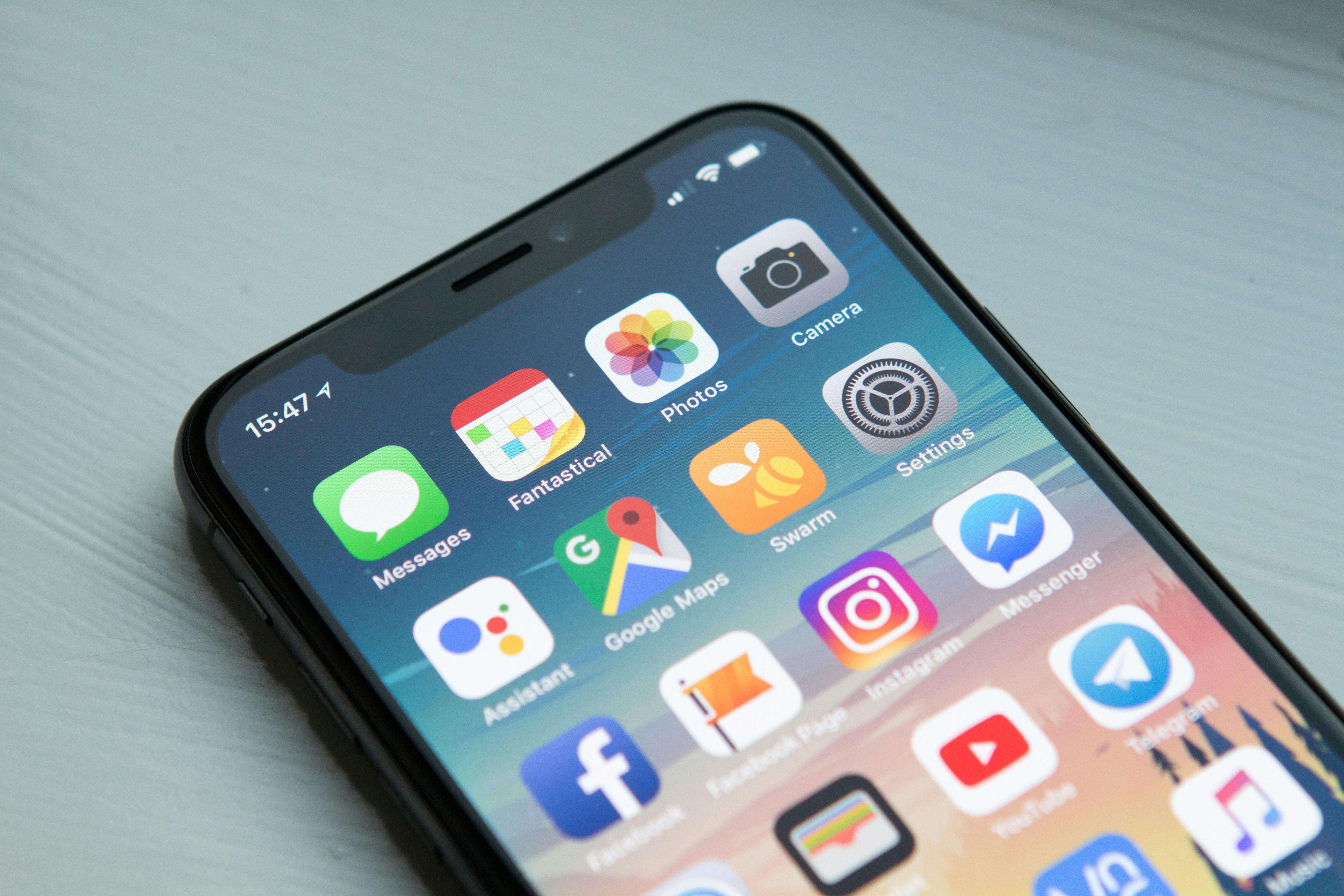AI as Your Health Coach? Exploring the Future of Personalized Wellness and Self-Care

Imagine having a health coach in your pocket, guiding your meals, workouts, and sleep with uncanny precision. That’s the promise of AI-driven wellness, a revolution that’s starting to ripple even in Nepal’s bustling cities like Kathmandu. Growing up in Itahari, I’d see my mother balance family health with intuition—now, AI could amplify that wisdom. This guide dives into how AI is reshaping personalized wellness and self-care, blending Himalayan healing traditions with cutting-edge tech. From tailored diet plans to mental health support, you’ll explore nine AI health coaching tools, a 30-day wellness plan, and the future of feeling your best. Let’s step into the future of self-care!
Jump to 30-Day AI Wellness PlanTable of Contents
- What Is an AI Health Coach?
- How AI Personalizes Wellness
- AI Tools for Nutrition
- AI for Fitness and Movement
- AI in Mental Health Support
- AI for Sleep Optimization
- Challenges and Limitations of AI Health Coaching
- AI Wellness in Nepal’s Context
- Integrating AI with Traditional Practices
- Ethical Considerations in AI Wellness
- Case Studies: AI Wellness Success Stories
- The Future of AI in Self-Care
- 30-Day AI-Driven Wellness Plan
- Frequently Asked Questions
1. What Is an AI Health Coach?
An AI health coach is like a wise friend who knows your body’s quirks and goals, powered by algorithms and data. It uses wearables, apps, and machine learning to offer tailored health advice. In Nepal, where tech cafes in Thamel buzz with innovation, my friend Anil uses an AI app to track his runs. A 2025 *Journal of Digital Health* study shows AI coaches improve adherence to wellness goals by 40%. These AI health coach tools analyze your habits—sleep, diet, activity—and suggest changes, making personalized wellness accessible.
- Data-Driven: Tracks biometrics like heart rate or calorie intake.
- Adaptive: Adjusts plans as your needs evolve.
- Accessible: Available 24/7, unlike human coaches.
Search Query: “What is an AI health coach”

2. How AI Personalizes Wellness
AI is like a tailor stitching a wellness plan just for you. It crunches data from your smartwatch, diet logs, or even stress levels to create bespoke recommendations. My cousin in Pokhara used an AI app to tweak her diet, easing her PCOS symptoms. A 2025 *Nature Digital Medicine* report notes AI’s ability to predict health risks with 85% accuracy, making it a game-changer for self-care.
2.1 Key Mechanisms
| AI Feature | How It Personalizes | Example |
|---|---|---|
| Machine Learning | Analyzes patterns in your data | Suggests low-carb meals for insulin resistance |
| Natural Language Processing | Understands your queries | Answers “What’s a healthy snack?” with local options |
| Predictive Analytics | Forecasts health risks | Warns of stress-related burnout |
| Real-Time Feedback | Adjusts advice instantly | Recommends hydration after a sweaty hike |
2.2 Why It Works
AI’s strength lies in its precision, learning from your unique data to offer advice no generic plan can match.
“My AI coach feels like it knows me better than I do,” says Priya, a Kathmandu student.
3. AI Tools for Nutrition
AI nutrition tools are like having a dietitian on speed dial. They analyze your food logs and suggest meals tailored to your needs. These tools for personalized nutrition are gaining traction even in Nepal’s urban centers.
3.1 AI Meal Planner
Tool: NutriBot | Benefits: Custom meal plans, allergy-friendly.
- How It Works: Input dietary preferences (e.g., vegetarian, gluten-free); get weekly plans.
- Example: Suggests a lentil curry with buckwheat roti for Nepal’s staples.
- Tip: Log meals daily for accurate calorie tracking.
3.2 Food Scanner
Tool: FoodVisor | Benefits: Analyzes food photos for nutrients.
- How It Works: Snap a plate of momos; get a nutritional breakdown.
- Example: Warns if fried momos exceed fat goals.
- Tip: Use with local dishes for better accuracy.

4. AI for Fitness and Movement
AI fitness tools make exercise feel like a personalized adventure. They adapt workouts to your fitness level and goals, perfect for Nepal’s active lifestyles.
4.1 AI Workout Generator
Tool: FitGenix | Benefits: Tailored exercise plans.
- How It Works: Input fitness level; get video-guided workouts.
- Example: Suggests a 20-minute yoga flow for flexibility.
- Tip: Pair with a smartwatch for real-time heart rate data.
4.2 Posture Corrector
Tool: PostureAI | Benefits: Reduces injury risk.
- How It Works: Analyzes movement via camera; corrects form.
- Example: Guides proper squat form during home workouts.
- Tip: Use during Nepal’s morning exercise routines.
5. AI in Mental Health Support
AI mental health tools are like a calm voice in a storm, offering support anytime. In Nepal, where stigma around therapy lingers, these tools are a discreet lifeline.
5.1 AI Chatbot Therapist
Tool: Woebot | Benefits: Cognitive behavioral therapy (CBT) techniques.
- How It Works: Chats to reframe negative thoughts.
- Example: Helps manage anxiety before a big meeting.
- Tip: Use daily for consistent mood tracking.
5.2 Mood Tracker
Tool: Moodpath | Benefits: Identifies stress patterns.
- How It Works: Logs emotions; suggests mindfulness exercises.
- Example: Recommends meditation after a stressful day.
- Tip: Pair with Nepal’s meditation practices for deeper calm.

6. AI for Sleep Optimization
Good sleep is the backbone of wellness, and AI tools help you master it. My sister in Lalitpur uses a sleep app to wake up refreshed.
6.1 Sleep Tracker
Tool: SleepCycle | Benefits: Analyzes sleep patterns.
- How It Works: Tracks movement and sound; wakes you at optimal times.
- Example: Suggests earlier bedtime for better REM sleep.
- Tip: Place phone near pillow for accurate data.
6.2 Bedtime Routine Planner
Tool: RestAI | Benefits: Promotes consistent sleep.
- How It Works: Designs wind-down routines based on habits.
- Example: Recommends chamomile tea and reading.
- Tip: Follow for 21 days to build a habit.
7. Challenges and Limitations of AI Health Coaching
AI isn’t perfect—it’s a tool, not a guru. In Nepal, where internet access can be spotty outside cities, connectivity is a hurdle. A 2025 *Health Tech Review* highlights other challenges.
- Data Privacy: Ensure apps use encrypted servers.
- Lack of Empathy: AI can’t replicate human connection.
- Over-Reliance: Balance AI with professional medical advice.
7.1 Mitigating Risks
Choose reputable apps, consult doctors for serious issues, and use AI as a supplement, not a replacement.
Search Query: “Limitations of AI health coaching”
8. AI Wellness in Nepal’s Context
Nepal’s tech scene is growing, with startups in Kathmandu embracing AI. Yet, rural areas face challenges like limited smartphone access. My friend Sita, a nurse, uses AI to track patients’ diets in urban clinics, but sees gaps in villages.
8.1 Opportunities
- Urban Adoption: Apps like FitGenix are popular in cities.
- Health Education: AI can teach nutrition in local languages.
- Cost-Effective: Free or low-cost apps democratize wellness.
8.2 Barriers
Limited internet and high device costs hinder rural reach. Community tech hubs could bridge this gap.
Search Query: “AI wellness in Nepal”
9. Integrating AI with Traditional Practices
AI and Nepal’s Himalayan wellness traditions—like Ayurveda and meditation—can work hand in hand. My uncle in Dhulikhel uses an AI app alongside tulsi tea rituals.
9.1 Combining Approaches
- Ayurveda + AI: AI suggests turmeric drinks for your dosha.
- Meditation + AI: Apps guide mindfulness with local mantras.
- Yoga + AI: AI tailors yoga flows to your energy levels.
9.2 Benefits
This blend honors Nepal’s heritage while leveraging tech for precision.
Blend AI with Tradition
10. Ethical Considerations in AI Wellness
AI wellness raises ethical questions. A 2025 *Ethics in Technology* study warns of data misuse and bias in algorithms.
10.1 Key Concerns
- Data Security: Health data breaches are a risk.
- Bias: AI may not account for Nepal’s diverse diets.
- Accessibility: Tech gaps exclude low-income users.
10.2 Solutions
Support transparent apps, advocate for inclusive AI, and educate users on privacy settings.
Search Query: “Ethical issues in AI health coaching”
11. Case Studies: AI Wellness Success Stories
Real stories show AI’s impact. These cases highlight its potential in Nepal and beyond.
11.1 Anita’s Weight Loss Journey
Location: Kathmandu | Tool: NutriBot
Anita, a 32-year-old teacher, lost 10 kg in six months using AI meal plans tailored to her vegetarian diet, incorporating local grains like buckwheat.
Location: Pokhara | Tool: Woebot
Raj, a 28-year-old entrepreneur, reduced anxiety by 30% using AI-guided CBT, paired with daily meditation.
11.3 Community Clinic Pilot
Location: Lalitpur | Tool: HealthAI
A clinic used AI to monitor 50 patients’ diets, improving diabetes control by 25% in three months.
Read More Success Stories12. The Future of AI in Self-Care
The future of self-care is bright with AI. A 2025 *MIT Technology Review* predicts AI will integrate with wearables for real-time health monitoring by 2030. In Nepal, imagine AI suggesting turmeric tea based on your stress levels or yoga poses for your back pain.
12.1 Emerging Trends
- Genomics Integration: AI will tailor diets to your DNA.
- VR Wellness: Virtual reality meditation guided by AI.
- Community AI: Local health bots for rural Nepal.
12.2 Nepal’s Role
With growing tech hubs, Nepal could pioneer AI wellness apps blending Ayurveda and data science.
Search Query: “Future of AI in self-care”
13. 30-Day AI-Driven Wellness Plan
This plan uses free or low-cost AI tools to boost your wellness, tailored for Nepal’s lifestyle. Follow it to explore AI’s potential.
| Day | AI Tool | Activity | Time |
|---|---|---|---|
| 1 | NutriBot | Log breakfast (e.g., dal-bhat); get meal suggestions | 10 min |
| 2 | FitGenix | Try a 15-min yoga flow | 15 min |
| 3 | Woebot | Chat to reframe a stressful thought | 5 min |
| 4 | SleepCycle | Track sleep; set bedtime goal | 5 min |
| 5 | FoodVisor | Snap lunch (e.g., veggie curry); check nutrients | 5 min |
| 6 | PostureAI | Correct posture during a walk | 10 min |
| 7 | Moodpath | Log mood; try a mindfulness exercise | 5 min |
| 8 | NutriBot | Plan a vegetarian dinner with local ingredients | 10 min |
| 9 | FitGenix | Do a 20-min bodyweight workout | 20 min |
| 10 | Woebot | Practice gratitude journaling | 5 min |
| 11 | SleepCycle | Analyze sleep data; adjust bedtime | 5 min |
| 12 | FoodVisor | Snap a snack (e.g., roasted chickpeas) | 5 min |
| 13 | PostureAI | Correct form during stretching | 10 min |
| 14 | Moodpath | Track stress; try breathing exercise | 5 min |
| 15 | NutriBot | Log a balanced lunch; get feedback | 10 min |
| 16 | FitGenix | Try a 15-min HIIT workout | 15 min |
| 17 | Woebot | Chat about a recent challenge | 5 min |
| 18 | SleepCycle | Review sleep trends; set goals | 5 min |
| 19 | FoodVisor | Snap dinner (e.g., quinoa bowl) | 5 min |
| 20 | PostureAI | Correct posture during work | 10 min |
| 21 | Moodpath | Log mood; try a guided meditation | 5 min |
| 22 | NutriBot | Plan a low-sugar breakfast | 10 min |
| 23 | FitGenix | Do a 20-min cardio session | 20 min |
| 24 | Woebot | Practice positive affirmations | 5 min |
| 25 | SleepCycle | Optimize bedtime routine | 5 min |
| 26 | FoodVisor | Snap a healthy lunch | 5 min |
| 27 | PostureAI | Correct form during yoga | 10 min |
| 28 | Moodpath | Track emotions; try journaling | 5 min |
| 29 | NutriBot | Plan a nutrient-dense dinner | 10 min |
| 30 | FitGenix | Reflect on progress; try a full-body workout | 20 min |
Tip: Download free versions of these apps or use trial periods to test them.
Your AI Wellness Checklist
Progress: 0/4 completed
14. Frequently Asked Questions
It’s an app or tool using AI to provide tailored health advice based on your data.
It analyzes your habits—diet, sleep, activity—to create custom plans.
No, it complements them, offering data-driven insights but lacking human empathy.
Yes, if you use reputable apps with strong privacy policies, but consult doctors for serious issues.
AI chatbots and mood trackers offer CBT techniques and mindfulness exercises.
It lacks empathy, may face connectivity issues, and requires data privacy vigilance.
Yes, especially in cities, but rural areas may face internet and device barriers.
Use AI to enhance Ayurveda, yoga, or meditation with tailored suggestions.
Expect genomic integration, VR wellness, and community health bots by 2030.
Many offer free versions or low-cost subscriptions, making them accessible.
Conclusion
AI as your health coach is like having a guide who never sleeps, blending Nepal’s wellness wisdom with futuristic precision. From nutrition to mental health, these tools empower you to take charge of your self-care. Whether you’re in Kathmandu’s tech hubs or a Himalayan village, AI can transform how you feel. Which tool will you try first? Share your thoughts in the comments!

Post a Comment